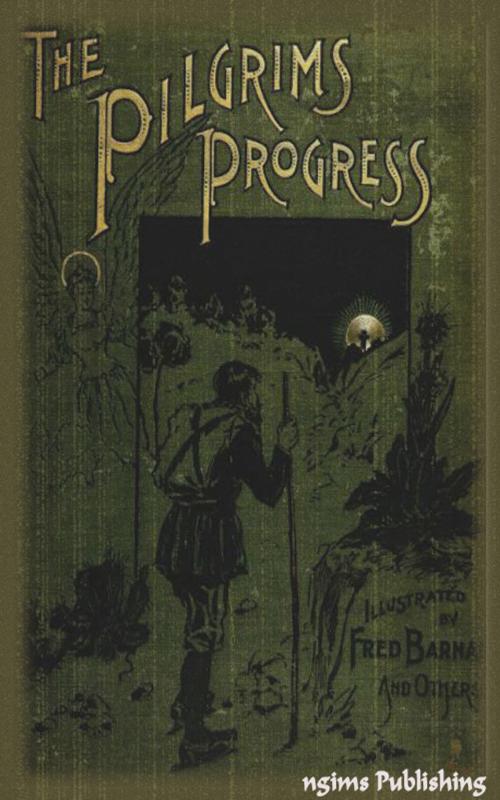The Pilgrim's Progress (Illustrated + Audiobook Download Link + Active TOC)
Nonfiction, Religion & Spirituality, Philosophy, History, Criticism, & Surveys, Political, Ethics & Moral Philosophy| Author: | John Bunyan | ISBN: | 9781618264176 |
| Publisher: | ngims Publishing | Publication: | May 17, 2013 |
| Imprint: | Language: | English |
| Author: | John Bunyan |
| ISBN: | 9781618264176 |
| Publisher: | ngims Publishing |
| Publication: | May 17, 2013 |
| Imprint: | |
| Language: | English |
FEATURES:
• Includes beautiful artworks and illustrations
• A link of a FREE audio book to download at the end of the book
• Active Table of Contents for an easy navigation within the book
• Manually coded and crafted by professionals for highest formatting quality and standards
Check out ngims Publishing's other illustrated literary classics. The vast majority of our books have original illustrations, free audiobook download link at the end of the book, navigable Table of Contents, and are fully formatted. Browse our library collection by typing in ngims or ngims plus the title you're looking for, e.g. ngims Gulliver's Travels.
Free ebooks on the web are not organized for easy reading, littered with text errors and often have missing contents. You will not find another beautifully formatted classic literature ebook that is well-designed with amazing artworks and illustrations and a link to download free audiobook for a very low price like this one. Our ebooks are hand-coded by professional formatters and programmers. Ebook development and design are the core of what our engineers do. Our ebooks are not the cheap flat text kind, but are built from the ground up with emphasis on proper text formatting and integrity.
The Pilgrim's Progress from This World to That Which Is to Come is a Christian allegory written by John Bunyan. It is regarded as one of the most significant works of religious English literature. Bunyan began his work while in the Bedfordshire county gaol for violations of the Conventicle Act, which prohibited the holding of religious services outside the auspices of the established Church of England. Early Bunyan scholars believed The Pilgrim's Progress was begun in Bunyan's second shorter imprisonment for 6 months in 1675, but more recent scholars believe that it was begun during Bunyan's initial, more lengthy imprisonment from 1660–72 right after he had written his spiritual autobiography, Grace Abounding to the Chief of Sinners. (Wikipedia)
FEATURES:
• Includes beautiful artworks and illustrations
• A link of a FREE audio book to download at the end of the book
• Active Table of Contents for an easy navigation within the book
• Manually coded and crafted by professionals for highest formatting quality and standards
Check out ngims Publishing's other illustrated literary classics. The vast majority of our books have original illustrations, free audiobook download link at the end of the book, navigable Table of Contents, and are fully formatted. Browse our library collection by typing in ngims or ngims plus the title you're looking for, e.g. ngims Gulliver's Travels.
Free ebooks on the web are not organized for easy reading, littered with text errors and often have missing contents. You will not find another beautifully formatted classic literature ebook that is well-designed with amazing artworks and illustrations and a link to download free audiobook for a very low price like this one. Our ebooks are hand-coded by professional formatters and programmers. Ebook development and design are the core of what our engineers do. Our ebooks are not the cheap flat text kind, but are built from the ground up with emphasis on proper text formatting and integrity.
The Pilgrim's Progress from This World to That Which Is to Come is a Christian allegory written by John Bunyan. It is regarded as one of the most significant works of religious English literature. Bunyan began his work while in the Bedfordshire county gaol for violations of the Conventicle Act, which prohibited the holding of religious services outside the auspices of the established Church of England. Early Bunyan scholars believed The Pilgrim's Progress was begun in Bunyan's second shorter imprisonment for 6 months in 1675, but more recent scholars believe that it was begun during Bunyan's initial, more lengthy imprisonment from 1660–72 right after he had written his spiritual autobiography, Grace Abounding to the Chief of Sinners. (Wikipedia)















